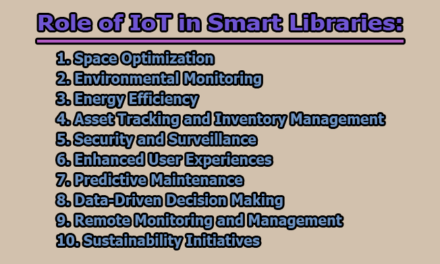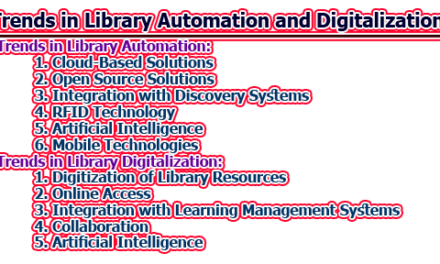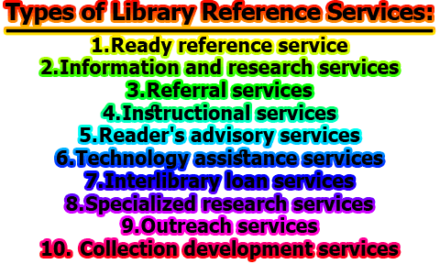Role of Library & Information Professionals in the Digital Era:
Today the emergence of digital technology and computer networks has provided a means whereby information can be stored, retrieved, disseminated, and duplicated in a fast and efficient manner. On a global level, digital libraries (DLs) have made considerable advances both in technology and its application. With the advances in information and communication technologies, the libraries are now changing to what may be called virtual or digital libraries. It has affected significantly the nature of the delivery of library resources and services. In the rest of this article, we are going to show you the role of library & information professionals in the digital era.
Digital Era:
“The information age (also known as the computer age, the digital age, or the new media age) is a historic period in the early 20th century that was characterized by rapid changes from traditional thematic industries that were originally brought into an economy through the industrial revolution. The beginning of the information age may be associated with the development of transistor technology, especially MOSFET (metal-oxide-semiconductor field-effect transistors), which revolutionized modern technology and became the basic building block of digital electronics in the information age.” (Wikipedia)
Needs of Digital Library:
- Information represented by a variety of digital objects.
- Geographically distributed digital information collections and users.
- Large and diverse collections.
Librarians Skills:
Some of the initial skills require the librarians when he/she serve the service in the digital library which are given below;
- Update: Must be updated about new & recent news of the world
- It Skills: Hardware, Software, Operating, Networking, Communication, Technology, Programming
- Leadership: must be a good leader.
- Collection: to know about rich collection & evaluation
- Managerial: to must know about management systems of the library or other things.
Roles of Librarian:
- To provide intellectual access to information in any format.
- To evaluate available sources of information.
- To organize & structure information.
- To ensure the preservation of information.
- Economic impact.
- To provide specialized staff to offer instruction.
Challenges and Issues:
- Shortage of library funds
- Technical infrastructure
- Lack of professional skills
- Collection of e-resources
- Copyright issues
- Lack of clarity in perspective
- Lack of co-operation of staff members
- Virtual crimes and security
Recommendations of Role of Library & Information Professionals in the Digital era:
Finally, we can say that libraries are an integral part of the knowledge society. Academic librarians need to acknowledge the changes that have already taken place in libraries and be aware of how larger social changes are affecting libraries. The law of changing nature, the library profession is no exception. The library is the first and foremost service. Its primary mission is to support the learning, teaching, and research activities of its core organization by providing access to information. The library system is an effective way to achieve these goals by ensuring that the library is user-centered. The library provides an interface between user needs and the library. Today’s academic library professionals are not just keepers of documents but they are information personnel.

Library Lecturer at Nurul Amin Degree College










